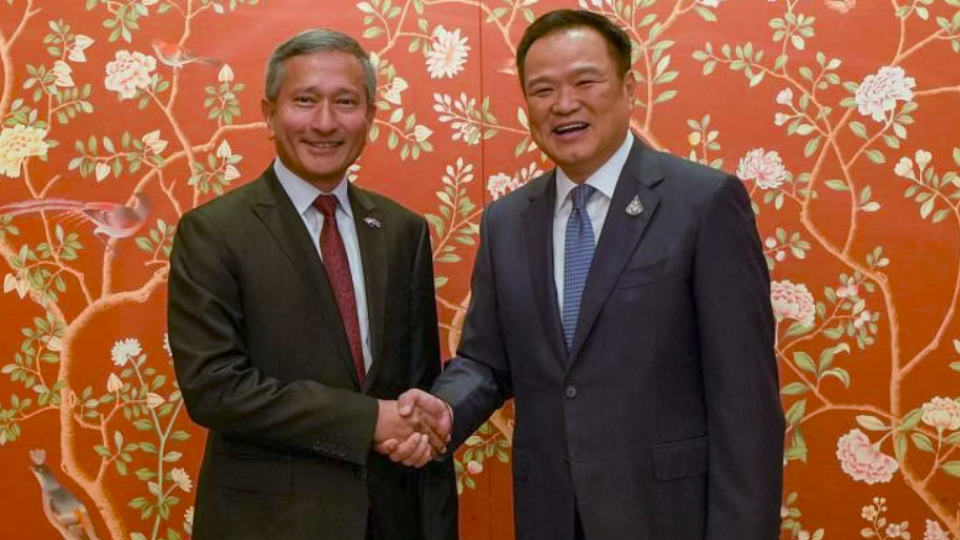SINGAPORE (ANN/THE STRAITS TIMES) – Despite the interest from several Southeast Asian countries in joining the BRICS economic bloc, Singapore Foreign Minister Vivian Balakrishnan emphasised that ASEAN remains irreplaceable.
In a media interview on June 26, concluding his two-day visit to Thailand, he stated, “ASEAN is the key player in our region.” ASEAN serves as an organising unit, production hub, investment zone, and competitive market, boasting 680 million people and a combined GDP of around USD3.5 trillion, which could potentially double or quadruple in the coming decades.
Earlier in June, Thailand and Malaysia announced plans to join BRICS, which comprises Brazil, Russia, India, China, and South Africa, challenging the Western-led global order. Myanmar and Laos had previously expressed interest in joining BRICS as well.
Dr Balakrishnan highlighted ASEAN’s trade agreements with countries like China, South Korea, and Japan.
Additionally, ASEAN members have initiated agreements such as the Digital Economy Partnership Agreement, originally founded by Singapore, Chile, and New Zealand, with South Korea joining and Thailand expressing interest.
These efforts to expand market reach do not hinder ASEAN’s growth or bilateral economic relations, he noted. “As long as these measures promote openness, inclusiveness, a level playing field, and attract investments and trade, we support these exploratory moves.”

Within ASEAN, countries need to enhance integration, connectivity, and infrastructure investments to boost competitiveness, he emphasised.
During his official visit to Thailand on June 25 to June 26, at the invitation of Thai counterpart Maris Sangiampongsa, Dr Balakrishnan delivered opening remarks at the coordinating meeting of the Thailand-Singapore Civil Service Exchange Programme.
Established in 1997 and now in its 14th edition, the program allows civil servants from both countries to share ideas on health, leadership development, and education.
In his speech, Dr Balakrishnan addressed the current global economic challenges, citing wars in Ukraine and Gaza and maritime tensions in the Pacific and South China Sea.
He stressed that the traditional models of economic growth and collaboration are insufficient in today’s fractured world.
For Singapore and Thailand, finding common ground in emerging areas like the digital space and sustainable economy is crucial. The two countries will celebrate the 60th anniversary of bilateral diplomatic relations in 2025.
Referring to the SQ321 turbulence incident in May, where a Singapore Airlines flight made an emergency landing in Bangkok, Dr Balakrishnan praised the Thai response as a testament to the deep, long-standing relationship between the two nations.





